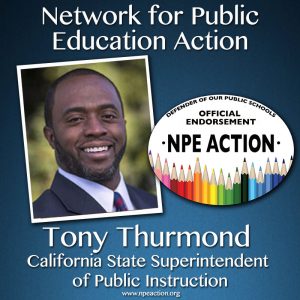IS THE CO-LOCATION OF CHARTERS INSIDE NEIGHBORHOOD SCHOOLS A PROBLEM?
This past summer I had opportunity to visit the Hawkins community schools in Los Angeles. What I haven’t talked about publicly is that I also was also invited to visit Magnolia Science Academy 3 (MSA3) which is co-located at Curtiss Middle School in Carson California during the same trip. The Magnolia charters are affiliated with the Gulen schools, the second largest network of charters in the United States (Read more about what that means in the post Breaking News: California NAACP calls for investigation of ALL Gülen charters)
A few months after the visit, there are a few things that really stick out in my mind about the visit to MSA3.

First, the faculty at the school talked about the small class sizes at MSA3. I only saw about 5 classes, but I counted and the class sizes in the rooms that I saw were 30+, which didn’t jive with the small class sizes that they told me about.
The second experience that really stuck out to me was that we walked into a science class and the teacher was showing a film that featured an adult (or maybe a teen) prancing around on a stage in a diaper. My science classes never featured curriculum this exciting (well maybe, in chemistry we blew things up), the teacher explained that she was showing a movie to “prepare the students for high school.” What?!
Third, faculty at MSA3 complained that they couldn’t use the gym and other facilities when they wanted them because they were co-located on the same campus with Curtiss Middle School (more on this in a moment). I’ll be honest, I wasn’t sympathetic.
Was there anything that I liked about MSA3 during the visit? I am a hip hop fan. In one of the classes the teacher showed how he was helping students program their own hip hop tracks. Now that was cool! But relevant?
The MSA3 staff also told me an interesting story. Apparently, there is a trash can in an alley that faces the Continue reading: Is the Co-Location of Charters inside Neighborhood Schools a Problem? | Cloaking Inequity
























